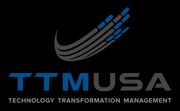Simple Guide to the Health Care Industry & HIPAA-Compliant Phone Systems

Just like other places of business, hospitals, doctor’s offices, and other health care providers rely on VoIP phone systems to streamline daily operations. But unlike other workplaces, those in the health industry must ensure that these systems also adhere to HIPAA regulations. If you’re looking to establish unified communications within a medical office, here are a few important points to know about VoIP and HIPAA compliance—and why the effort is worth it.
How Do HIPAA Regulations Impact Health Care Phone Systems?
HIPAA—short for the Health Insurance Portability and Accountability Act—employs a series of regulations designed to protect the privacy and confidentiality of patients and their medical records.
 Traditionally, voice phone calls and other methods of transmission aren’t subject to HIPAA laws because they don’t rely on electronic media. VoIP phone systems, however, are subject to these regulations because they collect and store data—such as voice recordings—on servers. This data may include sensitive patient information that should be protected under HIPAA.
Traditionally, voice phone calls and other methods of transmission aren’t subject to HIPAA laws because they don’t rely on electronic media. VoIP phone systems, however, are subject to these regulations because they collect and store data—such as voice recordings—on servers. This data may include sensitive patient information that should be protected under HIPAA.
For a health provider to meet these terms, they must ensure that:
- All VoIP-supported phones possess a user ID, which is authenticated by a certificate.
- Call data is recorded and updated regularly within a log.
- Access is limited to authorized parties.
- Transmitted data is encrypted.
- Their service provider offers a “HIPAA Business Associate Agreement.”
What Benefits Do VoIP Phone Systems Offer Health Providers?
Secure Communications
To meet HIPAA standard, compliant VoIP phone systems feature network-wide encryption. This encryption not only keeps all patient data secure but also prevents calls from being tapped.
Fast Service
VoIP systems allow administrators to quickly redirect incoming calls without the need for hold-and-transfer capabilities. Streamlining call connections improves office productivity while also giving patients faster service.
These systems can also be integrated with patient databases so that when an individual calls, their relevant information is already available to the administrator answering the phone. Having this information ready at the start of the call allows teams to assist patients in a timely and precise fashion.
Automated Logging
Although call records for a health care provider can be exhaustive, VoIP phone systems can log them automatically. This seamless organization helps save time when HIPAA-related data security audits are required.
Scalability
Since VoIP relies on cloud networks, phones can be added or moved without the need for extensive network reconfiguration. As a result, health care providers can easily adapt their network to accommodate growing teams or new buildings.
Specializing in dedicated Internet and unified communications in the Atlanta, GA, area, Technology Transformation Management is a leading resource for HIPAA-compliant solutions. If you oversee telecom infrastructures within the health sector, these experts will leverage their relationships with the top VoIP phone system providers to match you with the best solution and provide contract negotiations on your behalf. And with the support of their team, your team will enjoy communications that are not only secure but also speedy, clear, and reliable. Visit this team online or watch their informative videos to learn more about their capabilities or call (678) 783-5252 to schedule a telecommunications audit.
About the Business
Have a question? Ask the experts!
Send your question

